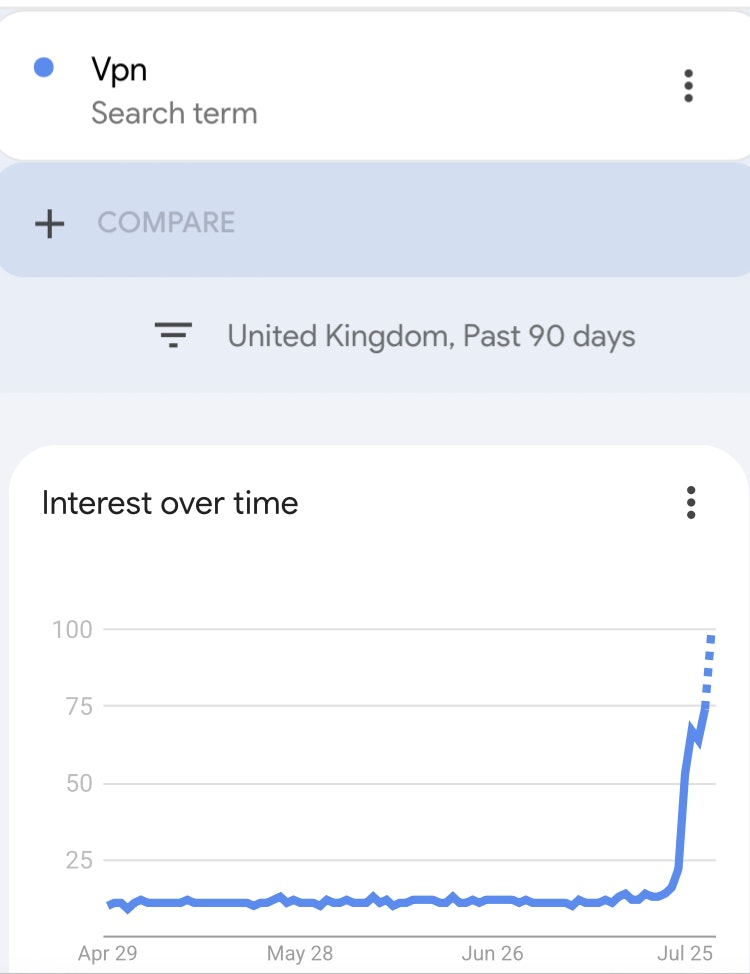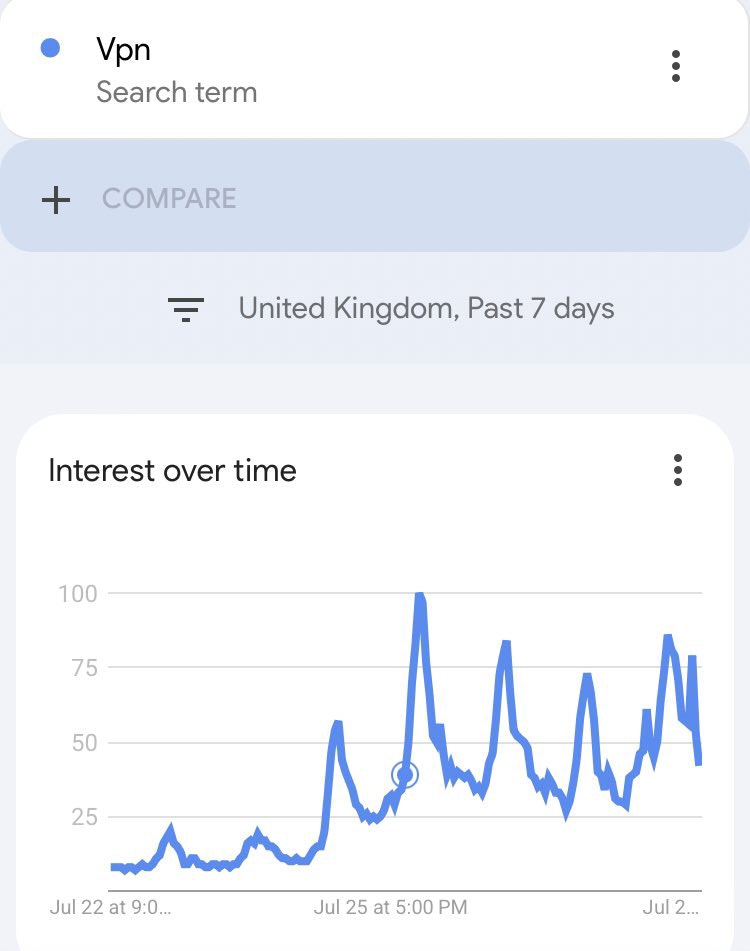Like most of the legislation that has been passed or enacted since Labour came to power, the Online Safety Act is an ill-conceived and poorly drafted Conservative idea that had cross-party support, with each faction of the Uniparty accusing the other of not going far enough. Censoring the internet is the one thing that is guaranteed to brings MPs of all stripes together. The latest phase of the Act was rolled out at midnight on Friday and took many people by surprise. Suddenly, they were expected to provide proof of their age if they wanted to view “adult content’”
Preventing children from seeing hardcore pornography is a noble aim, but parents can already protect them from adult content of all varieties by using features such as Family Link which have the added benefits of location sharing and screen time controls. The government insists that age verification is designed to stop online “predators”, with one minister even suggesting that those who criticise it are Jimmy Savile enablers but, as the Institute of Economic Affairs predicted from the outset, the threat of heavy fines has led internet platforms to extend the censorship far beyond porn.
People are right to be concerned about this slippery slope and yet it cannot be denied that it is pornography enthusiasts who have been hardest hit by the Online Safety Act in the short term. They must now verify themselves in one of three ways, each less appealing than the last. They can submit their credit card details, they can scan in proof of ID, such as a passport, or they can take a photo of their face and allow AI to judge how old they are. If they want to maximise their chances of being the victim of blackmail and identity theft, they could do all three.
While we might not think twice about submitting our credit card details to Amazon or posting our photos on Instagram, there is an understandable reluctance to hand over private data in order to access dubious websites for the purposes of sordid acts of self-pollution. The government assures us that the data will be kept confidential but it is only two weeks since we learned about a data breach that led to the names of 19,000 Afghans who wanted to flee the Taliban being given to the Taliban and it is less than two months since the names and addresses of 6.5 million Co-op customers were stolen in a cyber-attack. Rightly or wrongly, millions of British plank-spankers and rug-tuggers do not wish to identify themselves to anybody.
The result is a surge in interest in Virtual Private Networks (VPNs) which allow internet users to access websites as if they were in a less censorious country. Half of the top ten free apps in Apple’s app download charts yesterday were for VPNs. Google Trends data show that searches for “VPN” have gone through the roof since Friday. Readers can draw their own conclusions from the fact that these searches have been peaking between midnight and 2am.


Downloading random VPNs comes with risks of its own and opens up a whole new world of illicit online activity from free Premier League football to the Dark Web. But there is a deeper reason to feel uneasy about this unintended, albeit predictable, consequence of paternalistic regulation. By driving another wedge between the state and the individual, it further normalises rule-breaking in a country where casual lawlessness is becoming part of daily life. A law-abiding society cannot long endure if the median citizen thinks that the law is an ass.
The breakdown of trust can be seen most clearly when the ordinary man or woman does not share the moral certainties of the governing class. Among smokers, a collapse in tax morale — the intrinsic motivation to pay taxes — has led to a huge rise in the consumption of illegal tobacco in recent years. Smokers no longer feel any obligation to pay taxes that are designed to impoverish them to a government that vilifies them. Cannabis smokers learn from an early age to be suspicious of a police force that they might otherwise respect. Motorists who are faced with 20mph speed limits that were introduced by people who hate private transport have no scruples about flouting the law.
Closely analogous to the new age verification law are the affordability checks that punters are expected to undergo when they spend more than the state thinks is good for them on a gambling website. These have never been put into law and instead rely on a Kafkaesque system in which operators are expected to second guess what spending threshold the Gambling Commission thinks is appropriate. Faced with the threat of multi-million pound fines if they fail to spot a problem gambler, the companies err on the side of caution and request bank statements and other documents from any high-rolling customer. Unsurprisingly, many of these people do not want to share this private information and close their account. But they do not stop gambling. Instead, they switch to offshore gambling websites that are not regulated by the Gambling Commission. All they need to do that is — you guessed it — a VPN.
This all happens without any meaningful protest from the individuals involved. There are enough viewers of “adult content” to swing an election if they mobilised in their self-interest, but no group of consumers is less likely to stand up and be counted. Instead, like millions of other ordinary souls who find themselves semi-criminalised by an over-bearing state, they roll their eyes and find a workaround.












